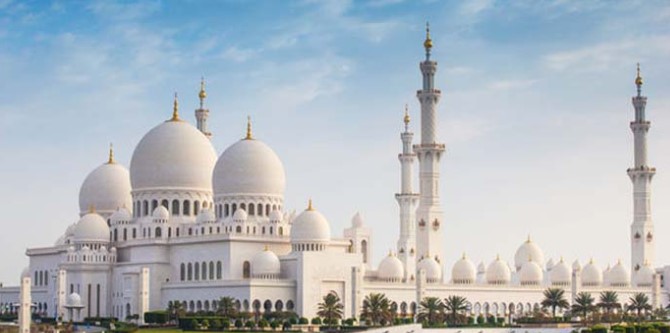Working Together to Reduces Politicization of Worship Places
By: Dede Sulaiman) *
Mosques must certainly function as messengers of the message of peace and unity of the nation. Aside from being a place of worship and a place to convey Islamic jurisprudence, without switching functions into the realm of a group’s campaign to get the coffers of the vote.
If politics talks about the country’s good goals, of course this is good, because the function of the mosque is to develop the country. But if what happens is to politicize the mosque for the benefit of his group or political parties, of course it will have an impact on the split of the people.
One indication of the movement of politicization of mosques is the content of lectures or sermons that direct pilgrims to certain interests. If this happens then it is possible that the unity of fellow believers will find a break.
The politicization of the mosque has indeed been applied to previous democratic parties by politicians. This is applied so that the group can gain votes from the worshipers. Some people also complained about the black campaign which was wrapped in the nuances of the propaganda of Islamic law. This will certainly be rejected by the public if places of worship such as mosques are misused for political purposes.
In 2017, the action walked out or left the mosque when the sermon material contained political elements that had boomed. When at that time the community felt uncomfortable when the preacher who was supposed to teach religious matters was tainted by political problems. Thanks to that, millions of people declared anti-politicization programs for mosques. This action aims to restore the function of the mosque properly.
If we look at history, activities in the mosque are not limited to worship only. At Zamah Rasulullah SAW until now, the mosque still holds the problem of the publicity of various dimensions. Muslim civilization also has a dependence on the place of worship, where the mosque becomes the central discussion of government, the strategy of war, deliberation and also education.
The Prophet Muhammad SAW made the mosque the center of control during his Caliphate. Various kinds of consensus meetings regarding publicity and nationality are generated from a gathering of worshipers in the mosque. Because it is so open, to the extent that the community plays a role in making government decisions.
The politicization of mosques does not mean voicing for Muslims to stay away from mosques, but the politicization of mosques must be rejected if the material in lectures or sermons contains material about speech utterances, or invitations to overthrow other political parties.
Ahead of the democratic party in April, we as a society must certainly be intelligent in distinguishing between politicization for the benefit of all people or politicization for the benefit of their own group.
Also important is an effort to build community political literacy. Because with qualified political literacy, it will slowly shift the discussion about the pro and anti-strongholds, into talks that discuss public policy.
If the community has good political literacy, then self-defeating and black campaign efforts will disappear from the pulpit of the mosque. In the end, the community will focus on substantial issues about what they can get as citizens.
In this case, it is the political elite who often stirs up the emotions of the voters through the politicization of religion. Regulations with strict definitions of the politicization of religion are important to make deterrent to the immoral elite.
The main politicization of SARA for the politicization of religion can also make the community sidetracked from those who should see the quality and program of candidates becoming merely a primordial identity attached to the candidate.
Even though there is no guarantee that candidates belonging to a particular religion or ethnic origin must be great and credible leaders.
The MUI also considered that in addition to violating the regulations of the KPU, it also tarnished religion because of the politicization of religion. Religious teaching should not be tainted by directing the people to choose one of the names or numbers of the presidential candidate pairs.
He also found a similar case in the Greater Bandung area, the politicization of places of worship took place ahead of the 2018 Pilgub, namely when preachers in a mosque clearly directed to their congregation to choose one of the candidates for governor and deputy governor candidates by directing which pair of numbers to choose.
Mosques can certainly lose their warmth when political intrigue has entered the pulpit. The mosque’s sincerity will be lost if the management is filled by power brokers. Both being prone and because of ignorance.
